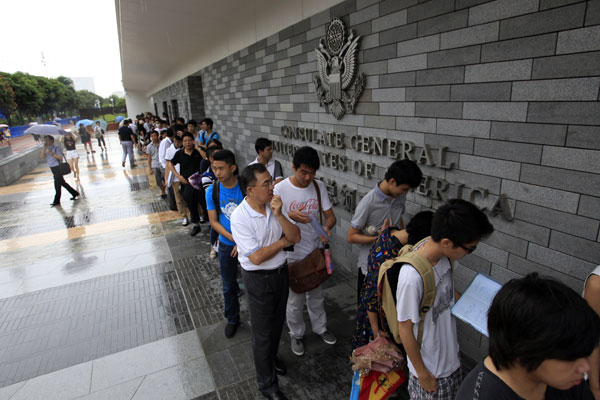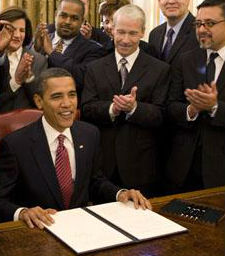Janaury 15, 2015 - New York City - In the U.S. there are spouses, children, and parents of U.S. citizens (immediate relatives) who are in the United States are not eligible to apply for lawful permanent resident (LPR) status while in the United States. Instead, these immediate relatives must travel abroad to obtain an immigrant visa from the Department of State (DOS) to return to the United States to request admission as an LPR, and, in many cases, also must request from the Department of Homeland Security (DHS) a waiver of inadmissibility as a result of their unlawful presence in the United States. Currently, these immediate relatives cannot apply for the waiver until after their immigrant visa interviews abroad. As a result, these immediate relatives must remain outside of the United States, separated from their U.S. citizen spouses, parents, or children, while USCIS adjudicates their waiver applications. In some cases, waiver application processing can take well over one year, prolonging the separation of these immediate relatives from their U.S. citizen spouses, parents, and children. In addition, the action required for these immediate relatives to obtain LPR status in the United States—departure from the United States to apply for an immigrant visa at a DOS consulate abroad—is the very action that triggers the unlawful presence inadmissibility grounds under section 212(a)(9)(B)(i) of the Immigration and Nationality Act (INA), 8 U.S.C. 1182(a)(9)(B)(i). As a result of the often lengthy processing times and uncertainty about whether they qualify for a waiver of the unlawful presence inadmissibility grounds, many immediate relatives who may qualify for an immigrant visa are reluctant to proceed abroad to seek an immigrant visa.
At this time, the provisional unlawful presence waiver process will remain available only to individuals who are residing in the U.S., are immediate relatives of U.S. citizens (i.e., spouses, children, and parents (if the U.S. citizen is at least 21 years of age, as defined in INA section 201(b), 8 U.S.C. 1151(b).
The focus of the provisional unlawful presence waiver process is to reduce the impact of the current waiver process on U.S. citizens by reducing the time U.S. citizens are separated from their immediate relatives.
Individuals who are already outside of the United States must pursue a waiver of inadmissibility through the current Form I-601 process. The provisional unlawful presence waiver process will remain available only to those individuals who are currently in the United States and will be departing for consular processing abroad.
Aliens in removal proceedings
The Application for Provisional Unlawful Presence Waiver, Form I-601A, will be filed only with USCIS, even if an alien is in removal proceedings before the Court.
Aliens in removal proceedings are allowed to participate in this new provisional unlawful presence waiver process if their removal proceedings are administratively closed and have not been recalendared at the time of filing the Form I-601A.
Aliens whose removal proceedings are terminated or dismissed are covered in the general population of aliens who are eligible to apply for a provisional unlawful presence waiver.
If the Form I-601A is approved for an alien whose proceedings have been administratively closed, the alien should seek termination or dismissal of the proceedings, without prejudice, by EOIR. The request for termination or dismissal should be granted before the alien departs for his or her immigrant visa interview abroad. Applicants who leave the United States before their removal proceedings are terminated or dismissed may experience delays in their immigrant visa processing or risk becoming ineligible for the immigrant visa based on another ground of inadmissibility
Aliens who have had their NTAs (Notice to Appear) cancelled by ICE are also covered in the general population of aliens who are eligible to apply for a provisional unlawful presence waiver, since their removal proceedings were never initiated through filing of an NTA with EOIR
DHS also will notify such applicants that, if granted the provisional unlawful presence waiver, applicants should seek termination or dismissal of their removal proceedings.
You can follow this links:
Apsan Law Offices, LLC.










